Recent controversy has surrounded Hawaii’s House Bill 2581 and Governor Green’s potential veto. The bill, aimed at limiting the governor’s power to cut off electronic media during emergencies, has raised concerns among First Amendment advocates.
House Bill 2581, which the governor appears poised to veto, proposes removing the governor’s and mayor’s power to “suspend electronic media transmission” during emergencies from Hawaii law.
The Big Island Press Club supports the bill, stating it provides a “reasoned and balanced measure” reflecting the public’s right to know while considering emergency management needs.
The Hawaii Association of Broadcasters says that a veto could be tantamount to censorship prohibited by the First Amendment.
Green’s intent to veto said Hawaii “must still guard against acts of extreme violence or acts of terrorism which can use social media or other electronic media to communicate and activate crowds or destructive devices.”
However, another crucial aspect to consider is the potential impact this legislation could have on Hawaii’s vital tourism industry. With the state heavily reliant on Hawaii tourism, understanding how emergency powers and media access intersect with the Hawaii visitor experience is essential.
The Role of Electronic Media during Hawaii emergencies.
Electronic media serves as a lifeline for information in times of crisis. Access to real-time updates via social media, news websites, and other electronic platforms is crucial for tourists unfamiliar with local emergency protocols. Past emergencies in Hawaii, such as volcanic eruptions, hurricanes, and tsunamis, have underscored the importance of timely and accurate information dissemination.
The recent debate over Hawaii’s House Bill 2581, which seeks to limit the governor’s power to cut off electronic media during emergencies, certainly brings to mind Hawaii’s 2018 false missile alert incident, which panicked everyone including us.
During that crisis, the rapid dissemination of information through electronic media was crucial in managing widespread public panic and confusion. For Hawaii’s tourism industry, visitors feeling safe and well-informed is critical, and any restriction on media access during emergencies could have dire consequences.
Tourists depend on timely and accurate updates to navigate crises, whether real or not. The perception that they might be left in the dark could deter future visitors, ultimately impacting Hawaii’s economy and reputation as a safe travel destination.
Potential consequences of media restrictions on Hawaii visitor safety and confidence.
Restricting electronic media during emergencies could leave tourists in the dark, exacerbating panic and potentially putting visitors at risk. Tourists rely heavily on digital communication to stay informed about developing situations and receive instructions.
Visitors might feel less secure knowing that critical information access could be cut off during emergencies. This perception could deter potential tourists from choosing Hawaii as their vacation destination, fearing they may be left vulnerable in a crisis.
Impact on the Hawaii tourism economy.
Hawaii’s economy is almost exclusively driven by tourism, so it could suffer if tourists choose alternative destinations perceived as safer or more reliable in terms of information access. Any further decline in Hawaii visitor numbers would affect local businesses, from hotels and restaurants to tour operators and retail.
Negative experiences caused by a lack of information during emergencies could further damage Hawaii’s reputation as a safe and welcoming tourist destination.
Examining how other tourist-heavy regions manage emergency communications can provide valuable insights. For instance, countries like Japan regularly face natural disasters and have robust systems to ensure continuous information flow to residents and tourists. These systems enhance the sense of security among visitors and residents and help maintain the country’s appeal as a tourist destination.
Proactive Hawaii communication solutions are needed.
Hawaii could consider several proactive measures to balance the need for emergency powers with the imperative of keeping tourists informed. Those might include more transparent communication policies that clearly outline the circumstances under which media access might be restricted and ensure there are alternative methods for disseminating critical information to the public, including Hawaii tourists.
In addition, the government should work closely with hotels, resorts, and other key players in the tourism sector to develop robust emergency communication plans that ensure tourists receive the necessary information, even if electronic media is limited.
Hawaii must ensure it optimally leverages technology to create a resilient information dissemination infrastructure, including emergency communication apps or systems that can operate independently of traditional media channels.
As Hawaii navigates the complex landscape of emergency powers and media access, it is crucial to consider the broader implications for its tourism industry. Ensuring that tourists feel safe and informed during their stay is a matter of public safety and essential for maintaining Hawaii’s status as a premier travel destination.
HB2581_CD1_Get Breaking Hawaii Travel News
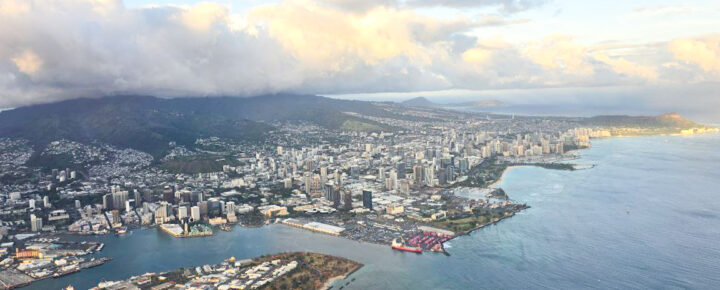
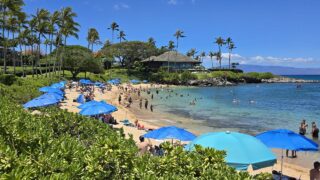
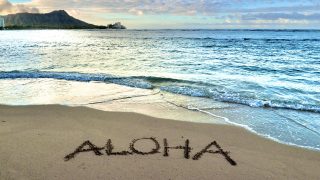
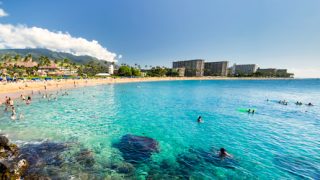
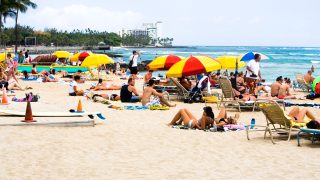
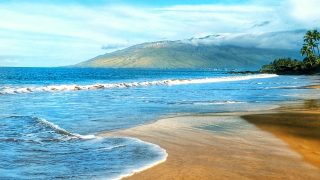
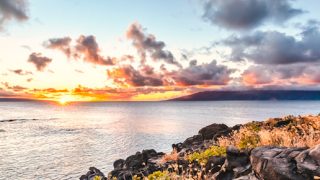
This is out 7th trip to Hawaii in the last few years, every time we come, things get more expensive, the infrastructure of the roads are terrible, everything is getting so rundown. Not sure how people survive here with the cost of everything. You need to get new representatives in your local government. They are not working for you!!
Thanks for sure
For 4 decades now, it never ceases to amaze me how the Hawaii State Legislature can spend so much time, effort, & energy micro-managing every aspect of life in the Islands, except for what is really essential. Hawaii has the highest electric rates in the USA, some of the highest food costs, some of the worst roads, some of the highest taxes, allows a near-monopoly to one health insurance company, yet has very serious shortages of healthcare workers. Yet, State Legislators #1 agena is to get reelected and to retain power. Seriously, I’ve given up on Hawaii State Government and am just trying to get by.
The government is the worst will eventually kill tourism if left in office
The governor needs to be voted out along with the mayors and all of their friends and relative working in the government, they are incapable of running the state or the counties.
The governor and especially the mayor are responsible for the loss of Lahaina and Kula. They didn’t maintain the electric or require owners to provide fire break to protect the towns
Emergency Powers should have limitations given to all levels of government. To many governors are abused the phrase “emergency powers” to get their way weather right or wrong. Just like changing taxes to fees to get around having a public vote. Welcome to the Micky Mouse and Goofy clubhouse.
Ige was bad enough but Green is a Total Disaster! When will the people of Hawaii Wake Up and stop voting for the same Failed politicians!
The only reason for the gov to cut internet service is to hide gov incompetence during a disaster. Typical overreach.
Aloha,
The Empire of Hawaii is giving me a rash.
Good Luck.
Mahalo
One more example of why HI voters need to follow the example of UK voters. Clean house from the top down. Governor, legislators and county mayors and councils.
They are wasting time and energy on this after giving control of the largest source of revenue for the state (tourism) to the counties.
All they know is to raise taxes on tourists and residents. Blaming tourists for the lack of affordable housing.
The governor seems to be telling tourists to go away. So sad.
As in the UK: vote against all incumbents next time.
Yes the government hates tourism and it’s already way down, west Maui is 40%
HB 2581 and Governor Green:
Green has a serious problem, to wit: Not having either the lack of research or wisdom to realize or understand unintended consequences.
This proposal is just plain madness—-think of the impact on vital personal communications albeit that government messages would go through. Are we living in the Soviet “Union” or a democratic republic? This proposal is a stab at being “big brother”! Kill it before it invades our freedoms!